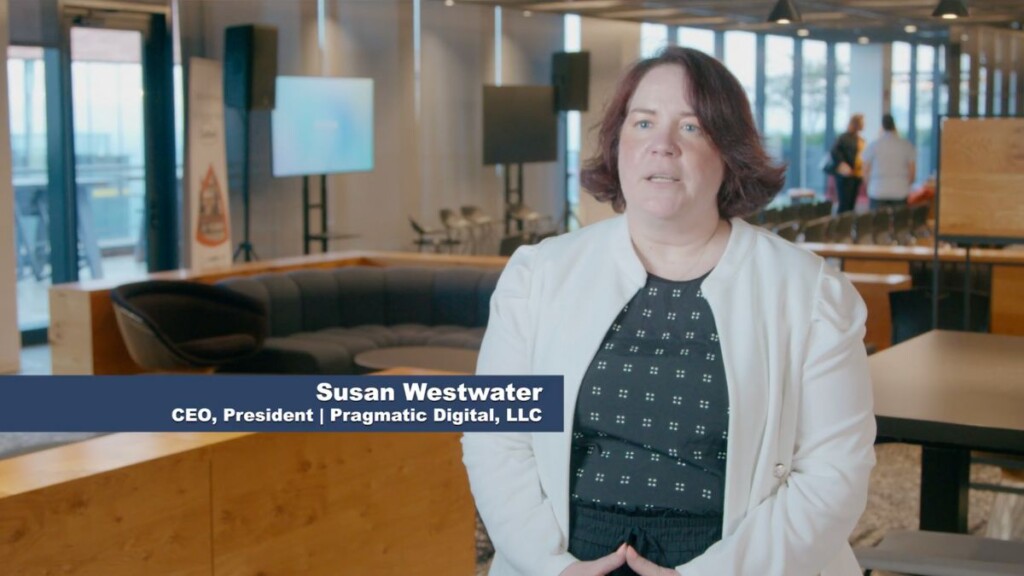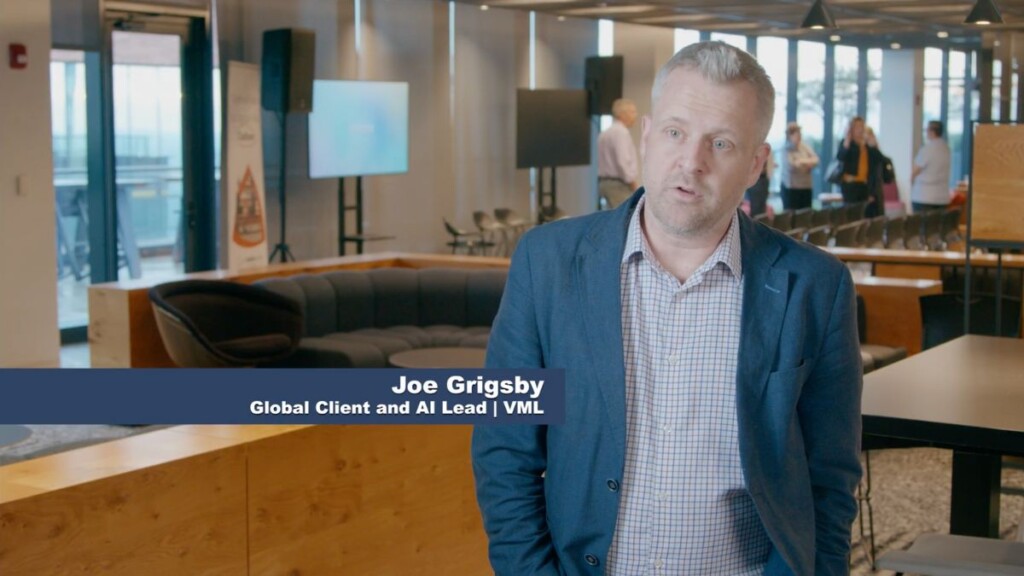As part of its ongoing commitment to being the essential community for Chicago-area marketers navigating the fast-evolving world of AI, the Chicago chapter of the American Marketing Association convened a panel of senior industry leaders to discuss how they are strategically integrating AI into their work. The June 4, 2025, Signature Speaker Series event was one of many programs about AI that the chapter has recently organized.
The panel discussion was held at the Chicago office of VML. The evening’s speakers were Wendy Shotts, Director of Acquisition, Discover Financial Services; Susan Westwater, CEO/President at Pragmatic Digital; and Joe Grigsby, Global Client and AI Lead at VML. Moderator Ann Hoeger, Chief Strategy Officer for the Golden Phoenix Group, launched the conversation with a series of thoughtful questions, prompting the speakers to share anecdotes about and insights into their experiences with AI so far.
Use it for play . . . whether it’s meal planning, grocery lists or helping with random research.
Key Insights
All panelists agreed that AI Large Language Models (LLMs) are incredible tools that are here to stay. It’s not a matter of if businesses should adopt AI for marketing—it’s a matter of how. Panelists emphasized that if AI isn’t being used yet, it should be integrated soon, before your organization falls behind. The tone throughout the event was clear: While AI is not perfect and it’s still in its infancy, its potential is enormous.
There was thoughtful discussion around job security and the future of work. While concerns about AI replacing humans in their work roles were acknowledged, the framework shared by the panel was optimistic: AI is not here to replace people, but to empower us. All panelists emphasized that AI is not a shortcut to trimming headcount, but a way to amplify talent, scale expertise and increase productivity.
It’s a tall order to optimize your business with AI, so the panelists repeatedly advised: start small. Begin by using AI personally to become familiar and comfortable with it. “Use it for play” was a standout phrase—whether it’s meal planning, grocery lists or helping with random research. From there, move toward using AI to brainstorm, explore training opportunities and discover work-specific use cases.
Firsthand Experiences
When asked to share examples of how AI has improved productivity and creativity, Wendy Shotts offered a clear, relatable response. She described how she input her meeting notes into Microsoft Copilot and prompted the tool to build a presentation:
“‘It kicked out a dozen slides or so in PowerPoint. Then I said, ‘Well, I don’t like the look and feel. Give me some other design examples.’ And it did that. Was it perfect? No. But what it gave me was a great first draft.”
Joe Grigsby highlighted valuable use cases such as deeper audience insights, content production at scale and using conversational AI to bring brand personas to life.

Susan Westwater explained how AI has changed her team’s approach to marketing planning by enabling structured roadmapping:
“That way, you can land quick wins and low-hanging fruit early, setting up test-and-learn cycles that build credibility and support long-term strategy. It’s about being intentional—knowing when to pause, assess and iterate.”
Takeaways
It was clear that all panelists and the moderator genuinely care about how AI is incorporated into marketing work. Their engagement was authentic: They have enjoyed working with AI and want others to understand its power. And they provided tips to those of us just beginning to work with this tool.
Just as compelling was the energy from the audience. Attendees asked real, vulnerable questions about how AI might affect their roles, companies or creative processes. The panelists responded with empathy, clarity and practical advice. That mutual curiosity and encouragement transformed the event from a discussion into an inspiring experience.
When the digital age hit marketing, professionals traded Rolodexes and magazine ads for CRMs and Instagram carousels. The next evolution is already happening. Though AI is still young and evolving, it is clearly powerful and here to stay.

When asked to share his biggest takeaway, Joe Grigsby emphasized how AI can unlock and scale what makes each person unique:
“Technology by itself is a commodity, right? There’s gonna be a lot of technology that’ll change. What you have to ask yourself is: What makes you special? What is your skill? What is your talent? What is your expertise? Figure out how to write that down. And you can start to turn that into an agent. But it is about what makes you uniquely you and the value you bring. That’s what we’re looking to unlock and scale. And that’s fun. That’s—how great is that? Do that all day.”
Wendy Shotts also encouraged the audience, saying, “Just play and have some fun. Start somewhere, because you can’t afford not to start somewhere.”
Susan Westwater offered a free downloadable toolkit for marketers.
The AI Marketing Forum
This in-person conversation series is designed for AMA Chicago marketers navigating the rapid evolution of artificial intelligence. Every other month, top AI thinkers and practitioners from Chicago gather to explore real-world applications, tackle ethical questions and reveal what’s coming next. This is your front-row seat to the ideas shaping the future of marketing. AMA Chicago members only.
Wednesday, October 8, 2025 | 4:30–6 p.m.
Register now
